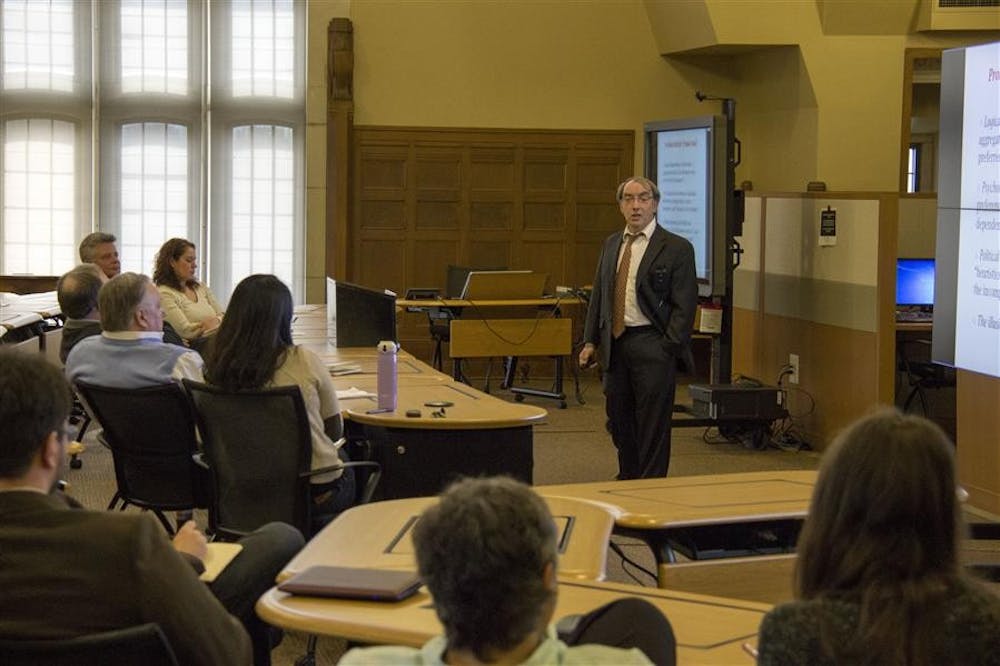On March 23, 1924, the board of trustees approved the creation of a political science department at IU.
Russell Hanson, the current chair of IU’s department of political science, said the department was ahead of its time; one of the first in the country to use the title of “political science” when many like it were going by names such as “department of government.”
One hundred years later, Hanson said the department has 560 to 600 students majoring in political science.
“The prospects are bright to us and we expect to continue on for another hundred years,” Hanson said.
The department has organized a week-long celebration of its centennial, including two lectures, a roundtable on women in politics and career-based sessions.
IU’s department of political science was founded under the leadership of Amos Shartle Hershey.
According to a history of political science at IU written by Edward H. Buehrig in 1983, Hershey joined IU’s faculty in the department of American history and politics.
“While the close connection of political science with history on the one side and with political economy and sociology on the other side is generally recognized, it is also generally felt and believed that political science has a distinct character of its own, and that it differs from Historical Science in scope, purpose, and method,” Hershey said to the board of trustees in 1906.
It took eight years after Hershey submitted his proposal, but the department of political science was formed.
Celebrations of the centennial began Monday with a lecture by distinguished political scientist, Larry Bartels, a professor at Vanderbilt University.
Bartels presented some work by himself and Christopher H. Achen at Princeton University.
The lecture was titled, “Democracy for Realists” and focused primarily on the problems that come with retrospective voting.
“Most people just aren’t paying that much attention to politics,” Bartels said.
The lecture, in Woodburn Hall, drew a large number of political science faculty members and graduate students.
Bartels left the audience with a singular closing thought.
“Political progress seems to hinge on political culture, political institutions and political economy, not on public opinion, electoral politics or Fourth of July rhetoric,” he said.
He admitted he came to this conclusion reluctantly, as he spent much of his life studying public opinion and electoral politics.
The second lecture will take place at 3 p.m. March 28 in Woodburn Hall 200, where Terrence Ball of Arizona State University will speak on “Lincoln’s Deadly Hermeneutics.”
Hanson said the study of political science is valuable and has multiple
applications.
“I think many of the problems that we face as a society have political solutions to them,” he said.
He also said a significant number of political science majors go on to study law or obtain jobs in politically influential corporations.
Hanson said that, in light of the centennial, he hopes to improve the curriculum, including the addition of a careers course.
“We’re very proud of what we’ve done,” he said, “We’re ambitious, so we hope to do better.
Poli sci celebrates 100 years

Get stories like this in your inbox
Subscribe



